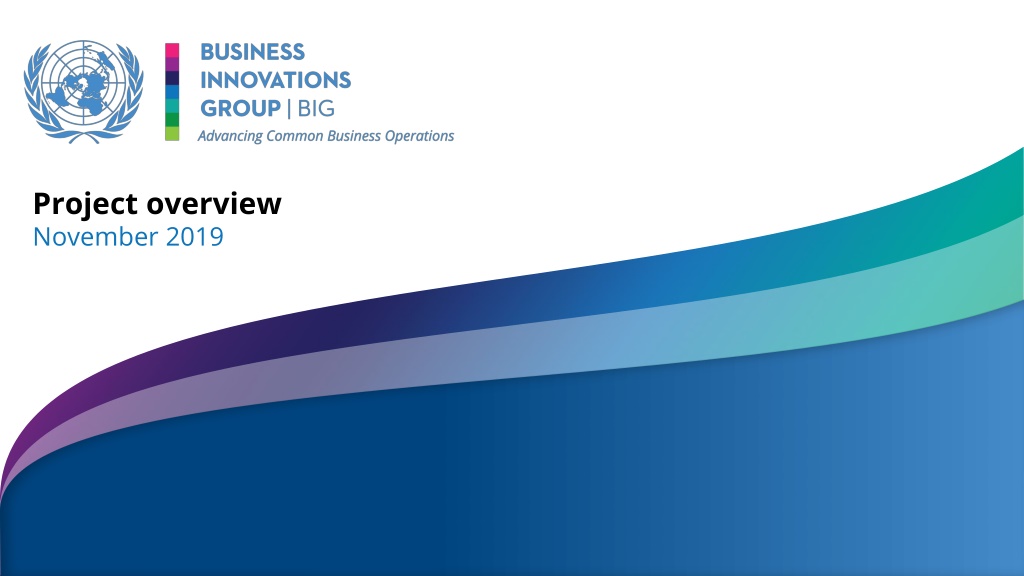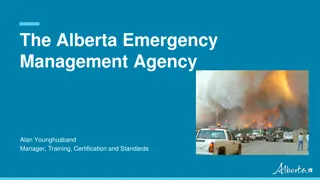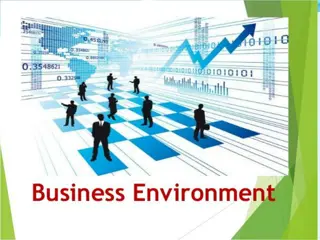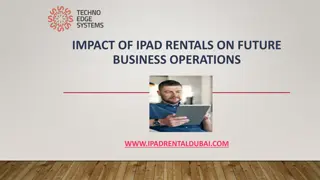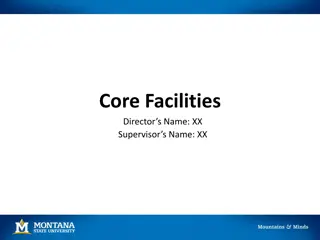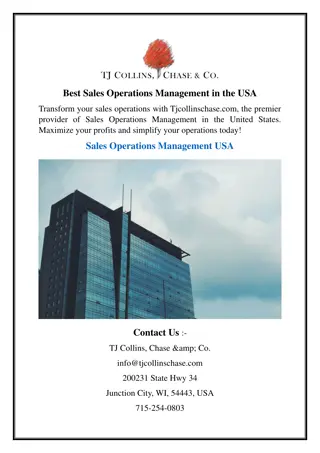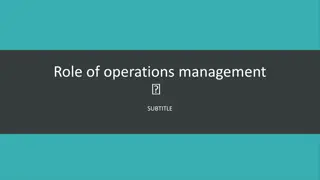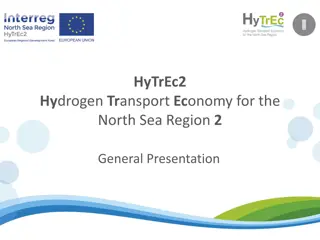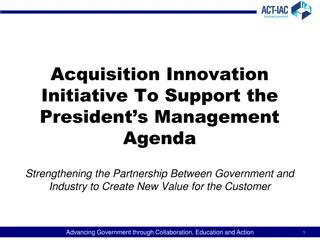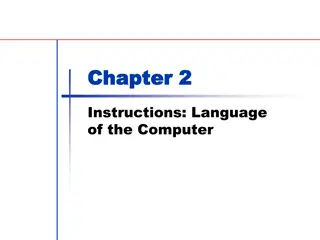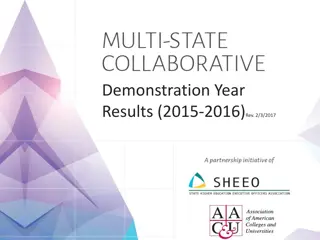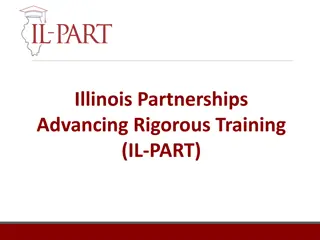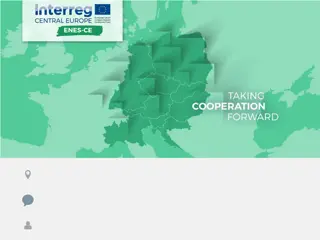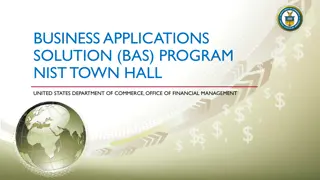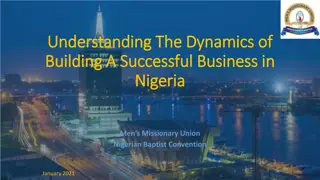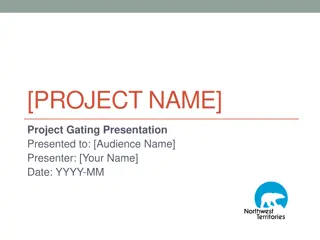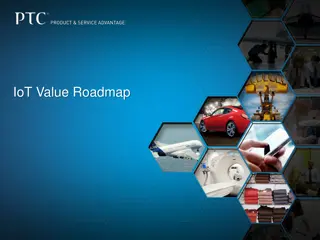Advancing Common Business Operations Overview
Advancing Common Business Operations in November 2019 focuses on key targets and enablers such as Business Operations Strategy, Common Back Offices, Global Shared Service Centers, Common Premises, Mutual Recognition, Client Satisfaction Principles, and Costing & Pricing Principles. The project aims to enhance UN operations efficiency and effectiveness through strategic initiatives and practical implementations across various country teams.
Download Presentation

Please find below an Image/Link to download the presentation.
The content on the website is provided AS IS for your information and personal use only. It may not be sold, licensed, or shared on other websites without obtaining consent from the author.If you encounter any issues during the download, it is possible that the publisher has removed the file from their server.
You are allowed to download the files provided on this website for personal or commercial use, subject to the condition that they are used lawfully. All files are the property of their respective owners.
The content on the website is provided AS IS for your information and personal use only. It may not be sold, licensed, or shared on other websites without obtaining consent from the author.
E N D
Presentation Transcript
Project overview November 2019
Advancing Common Business Operations TARGETS ENABLERS 1 Business Operations Strategy 2 Common Back Offices 3 Global Shared Service Centers 4 Common Premises 5 Mutual Recognition 6 Client Satisfaction Principles 7 Costing & Pricing Principles | 1
1. Business Operations Strategy (BOS) Adopt improved Business Operations Strategy by all UN country teams by 2021 Current progress: What s next? 1. Finalize online platform. BOS 2.0 guidance launched in October. 2. Global rollout activities led by Development Coordination Office (DCO): BOS online tool user acceptance test conducted. > - Training of Trainers in region workshops to create core capacity with BOS experts, starting in Nov 2019; Next steps for the rollout plan defined, including country prioritization, capacity development and support structure. - Practitioner training for general group of staff in 2020; - Webinars and video tutorials. | 2
4. Common Premises Increase the proportion of UN common premises to 50 per cent by 2021 Current progress: What s next? Requires a culture shift to co-locating as the new norm, and a whole-country approach to review both capital and subnational offices. 1. Propose revised resource requirement. 2. Create new end-to-end consolidation planning guidelines / tools by Q1 2020. In March 2019, an Investment Request was presented. As no resources were forthcoming, a scaled down consolidating planning pilot was taken in 6 countries1 to test tools/approach. > 3. Complete three more pilots. 4. Support DCO/TTCP+FS to develop a UN-wide premise database. 3 pilots completed: results suggest that the consolidation planning will require external support to the UNCTs/OMTs, and that a self-review without central support may not be achievable. | 3 1. Kosovo1, Bolivia, Burundi, Colombia, Pakistan and Sri Lanka. References to Kosovo on this website shall be understood to be in the context of Security Council Resolution 1244 (1999).
Three Enablers: Mutual Recognition Client Satisfaction Costing & Pricing 5. Mutual Recognition Statement Operate with the mutual recognition of best practices regarding policies and procedures 16 entities signed to date, most recently, FAO and UNRWA joining the UN Secretariat, ILO, IOM, ITU, UN Women, UNAIDS, UNDP, UNESCO, UNFPA, UNHCR, UNICEF, UNOPS, WFP, and WHO BIG project team is facilitating entity-level and inter-agency level discussion on operationalization. 6. Client Satisfaction Principles Measure client satisfaction with regard to all back- office services Principles reviewed and finalized. Shared with member entities for signature in September and first signed by UNHCR & WFP. Process facilitated by DCO. 7. Costing and Pricing Principles Agree on pricing principles to ensure fairness and transparency in service provision | 4
Advancing Common Business Operations TARGETS ENABLERS 1 Business Operations Strategy 2 Common Back Offices 3 Global Shared Service Centers 4 Common Premises 5 Mutual Recognition 6 Client Satisfaction Principles 7 Costing & Pricing Principles | 5
Back-office activity can be optimized through global and local initiatives Automation Review Digital Solutions Centre Global Business Case Review Entity s own centralization activities Taxonomy review Location independen t activities Move to global solution YES Will it be centralized? Marketplace Bilateral initiatives Consolidation Multi-entity initiatives Business processes Local Business Case Review Entity s own processes improvements NO Location dependent activities Business Operations Strategy (BOS) - Cooperate Keep at CO Level Common Back Office (CBO) - Consolidate & cooperate Marketplace Bilateral initiatives | 6
In-country consultations held to inform the overall design Consultation progress: Purpose: Create fact-base and gather qualitative feedback on which service elements could be consolidated in a common back office. Six countries participated: Albania, Botswana, Jordan, Laos, Senegal and Vietnam; 6 back-office service areas in scope: Administration, Finance, HR, Procurement, Logistics, and ICT; Individual country report and a synthesis report were issued, drawing on the conclusions to form recommendations for the CBO proposal. Consultation conclusions: 1. Highest priority focus should be on centralisation can be done either: A. Internally, or B. Working bilaterally with service provider through Marketplace 2. Second priority is on other global initiatives that can be cross-entity: A. Within BIG the focus is Marketplace and Fleet Services concept B. Associated but outside BIG there are Humanitarian Booking Hub and Digital Solution Centre 3. Third priority is the Common Back Office in country, with lower relative business case saving opportunity but vital for efficiency and quality improvements > | 7
2. Common Back Offices (CBO) Establish common back offices for all UN country teams by 2022 Proposal is to scale up BOS as a foundation for CBO What s next? 1. Develop detailed approach, including ROI / Cost-benefit analysis and a prioritized activity list; BOS is a key deliverable of BIG and a foundation for CBO BOS successfully promotes cooperative behavior 2. Develop standard SLA BOS is established, demanded by the field, and has promoted significant collaboration and realized tangible cost avoidance 3. Explore CBO portal design BOS online platform can be scaled to handle heavier duty Common Back Office functions BOS will be rolled out to all 132 UN offices globally starting in Q4, 2019 | 8
BOS to CBO: CBO as a gradual evolution of maturity, not as an organizational model CBO (2020+) BOS + (Q4-2019) BOS original (Current) 1 1. 2. 2 Approach Functional areas Cooperation Ad-hoc selection of activities, followed by CBA Cooperation & M&E elements Ad-hoc selection of activities and ROI recommendations, followed by CBA Streamlined guidelines & digital processes Mutual recognition SG mandated target All UNCTs N/A Consolidation & Cooperation More directed focus on potential high ROI areas; followed by CBA Mutual recognition Costing & Pricing principles Client satisfaction principles 3. 3 Enabler BOS guidance and templates Operating framework Technology N/A Service Level Agreement (SLA) 4 Paper-based / Excel Online BOS platform Online BOS platform CBO portal Clear governance structure 5 Governance UNCT/OMT + Entity-led UNCT/OMT + Entity-led 6 9
3. Global Shared Service Centre (GSSC) Explore consolidation of location-independent business operations into a network of shared service centres Current progress: What s next? UN Services Marketplace : network of shared service centres could be based on a marketplace concept to support the exchange of services. Marketplace Survey Round Two: Follow-up request will be issued in Q4 2019. The new survey will seek clarification on the scope and scale of services offered, as well as request inputs from the entities which did not respond to the Round One survey. Marketplace Survey launched in July 2019 through HLCM: to collect information on services activities each agency is providing or would be prepared to offer to other UN entities, and those service activities that it would potentially like to receive. Survey results received from 21 entities, with summary report and individual entity reports published in Oct 2019. | 10
Marketplace survey: Response and Results Overview of respondents Summary of results Responses received from 21 entities to date: Results are very positive: most entities willing to embark in the marketplace whether to offer service, receive, or both o FAO, ILO, IOM, UNAIDS, UNDP, UNFPA, UNHCR, UNICEF, UNIDO, UNODC, UNOPS, UNRWA, UN Women, WFP, WHO, WIPO There are no services requested which are not offered by at least one entity o Five UN regional commissions: ECA, ECE, ECLAC, ESCAP, ESCWA Aggregate number of activities offered now is 1,109, with a further 120 proposed for the future Awaiting response from 15 HLCM member entities Additional observations: Aggregate number of activities requested is 1,041 o IOM no activities requested or offered at this time o ECE no activities offered, because fully served by UNOG | 11
New: Fleet Services workstream Priority areas Secondary areas 3. Right Profiling Avoid over specified vehicles1 Acquisition of vehicles with lower specifications will reduce costs by $6-7 M recurrently 5. Disposal strategy Set up a global disposal scheme Entities with a disposal strategy may realize $2000 - $6,000/ vehicle more than those without. 1. Right Sizing Centralized vehicle management and car pooling Potential to reduce fleet size by ~20% Potential one-time acquisition cost avoidance of $140 - $200 M 2. Cost management Deploy IT tool to improve fleet cost management Potential to reduce operating costs by $5-13 M annually Other opportunities Insurance Lifecycle Management Armored Vehicle Generators Tracking systems (fuel, emissions, maintenance, repair, road safety, security) 4. Acquisition strategy Centralize procurement for economy of scale Potential to realize recurrent savings of +/-$4 million 1. 10% target considered for all vehicle categories except 4X4 heavy duty luxury vehicles; All 4X4 heavy duty luxury vehicles should be converted to standard 4X4 heavy duty vehicles Source: UN Fleet Services stream data template received from UN entities | 12
Fleet services: Country-level desired end-state Future state Joint light vehicle fleet as a common pool and service: o Centrally managed at the country level o Tasked centrally via a shared platform o Common maintenance and driver pool Standardisation of requirements and policies: o Vehicles and ancillaries o Communications tools and IT for vehicle management, tracking, operational tasking o Common mobility policies and standards Improved cost management: o Common costing model o Fully self-financed Professionalisation: o Customer Service and Technical needs o Increased use of commercial solutions where appropriate Challenges Highly fragmented fleet Inappropriate vehicles for the need Lack of comms and IT systems Informal/ad hoc management of fleet Inconsistent maintenance standards Poor cost control | 13
Fleet services: Global-level desired end-state Future state - A Global Shared Service Centre: Governance: o Governance structure in place, with close relationship to both HQ and country-level for dynamic responses o Common set of policies and SOPS in place, including requirements planning (right sizing/right profile) Single Supply Chain: o Shared procurement and contract management; o Shared light vehicle supply chain, e.g., shipping, insurance, stocks, spares, ancillary/comms, maintenance, disposal Financing: o Fully self-funded, self sustaining business model o Dedicated resources for operations Shared units: o Training and Country Office Support Unit o Common Data Systems and Management Unit o Road Safety and Security Unit Challenges Highly duplicative: Not leveraging economy of scale Poor operational cost control Lack of professionalism in organizational structure Fragmented approach to IT and communications system | 14
Project team 2020 workplan Completed / completion in the very near term Q4 19 Q1 20 Q2 20 Q3 20 Q4 20 BOS Complete platform Launch activities and trainings led by DCO Commo n Premise s Continue pilots and testing Finalize consolidation planning tools and guidelines Launch led by DCO Support database development as required, led by DCO/TTCO Develop & conduct pilots, SLAs and portal Agree on CBO model CBO Develop CBO tools and guidelines Share Marketplace 1st summary report Launch led by DCO GSSC Develop Marketplace 2nd survey Conduct Marketplace 2nd survey Set up governance and on-going mechanism Enablers Operationalize through CBO and GSSC designs & Support entity to operationalize through facilitated discussions New: Fleet Services Agree on model and pilot proposals Develop & conduct pilots Develop Gov, Finance, IT proposal Develop final proposal | 15
Repositioning the United Nations development system also reinforces the impact of concurrent reforms of internal management and the peace and security architecture. United Nations Secretary-General | 16
